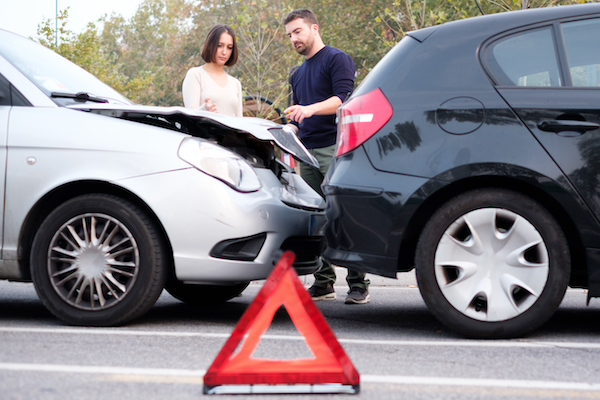How Long Does a Car Accident Stay on Your Insurance Record?

It’s very likely a car accident will increase the cost of your car insurance. But for how long? And how long does a car accident stay on your insurance record?
Do I Have To Tell My Car Insurance About an Accident?
If you’re involved in a car accident, no matter how minor, you need to tell your insurer. Even if the accident wasn’t your fault, and even if you don’t intend to make a claim, you still need to tell your insurer. If you don’t, you risk invalidating your insurance policy.
How Long Does a Car Accident Stay on Your Insurance Record?
It all depends on the insurer, and on the type of accident you’ve had. But generally speaking, accidents will stay on your insurance record for three to five years.
How Much Do Accidents Affect Insurance?
Insurance rates generally increase after you’ve had an accident. Why? Because car insurance is all about risk. The amount insurers charge you will all depend on your risk profile as a driver. The greater your risk of getting involved in an accident, the more you’ll pay.
This is why young drivers usually pay more for insurance than older, more experienced drivers. Statistically, they’re more at risk of an accident. So they pay more for their insurance as a result.
If you have an accident, no matter how mild, and regardless of whether you make a claim, insurers will view you as a comparatively higher risk.
But how much do accidents affect insurance? Unfortunately there’s no straightforward answer to this. Once again, it depends on the insurer, and on the type of accident you’ve had.
Will An Accident That Wasn’t Your Fault Affect Insurance?
An accident that wasn’t your fault is unlikely to result in a major price hike. A bump or shunt resulting in a small dent or scratch probably won’t affect your insurance too much. But if you’re regularly involved in small accidents, your insurance will likely go up a lot, as insurers will view you as a higher risk than that of a driver who is accident free.
How To Save Money On Car Insurance If I’ve Been In An Accident?
So if you’re involved in an accident there are a few things you can do to save money on your car insurance:
Don’t make a claim – if you’ve only got scratches and bumps to deal with you may want to choose to pay for the repairs yourself. Putting yourself out of pocket in the short term could prove cheaper than paying more for insurance in the long term. However, you will still need to notify your insurer but confirm you wish to pay for the repairs yourself.
Increase your excess – Offer to pay a greater excess, and it may bring down the overall price of your policy.
Take another driving course – It’s no guarantee, but taking an advanced driving course – such as the government’s Pass Plus scheme – could demonstrate your commitment to safer driving, resulting in lower premiums.
Switch insurers – Your accident will remain on your insurance record for up to five years. Any other insurers will still take it into consideration when calculating the price of your policy. But you may still be able to find cheaper car insurance if you shop around.
What Else Do You Have to Tell Your Insurer?
It’s not just accidents. There are certain other things you need to declare to your insurer. Unfortunately, like with accidents, these things are likely to push up the price of your policy. But again, if you don’t declare them you risk invalidating your policy entirely.
First, you need to tell your insurer if you get any points on your licence. The amount your points will affect your insurance will depend on the type of motoring offence you’ve committed.
Also, there are certain medical conditions you need to declare to your insurer. Different conditions will affect your insurance in different ways.
For more information, please check your policy wording.







